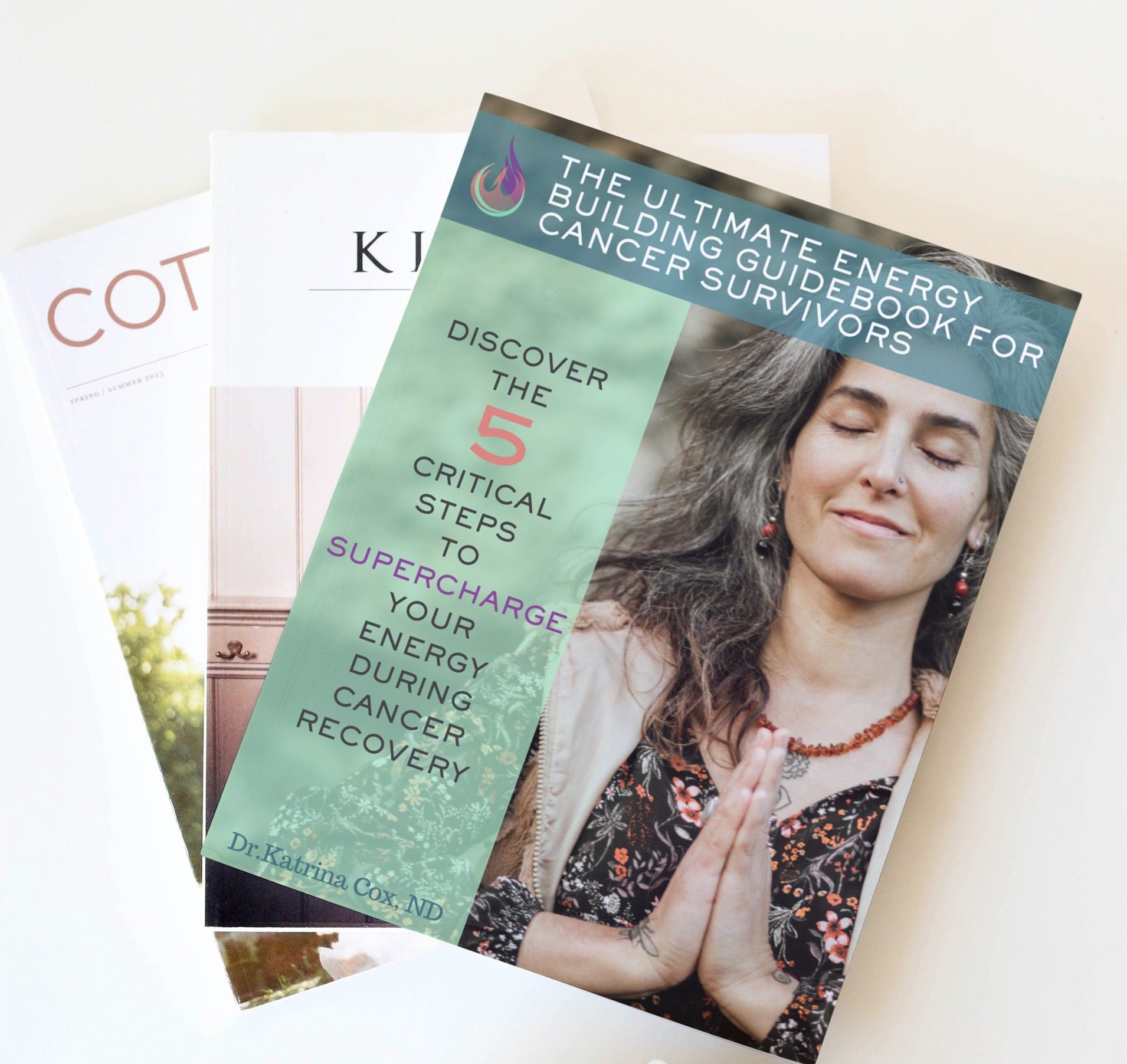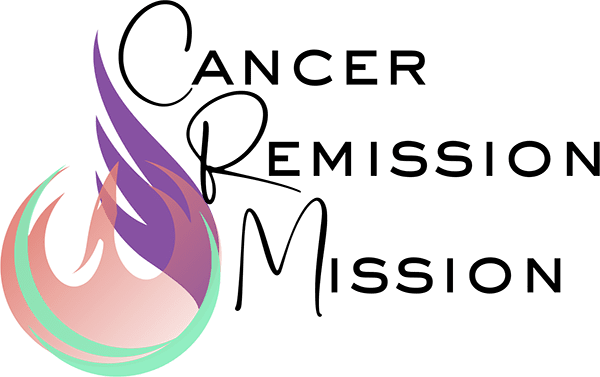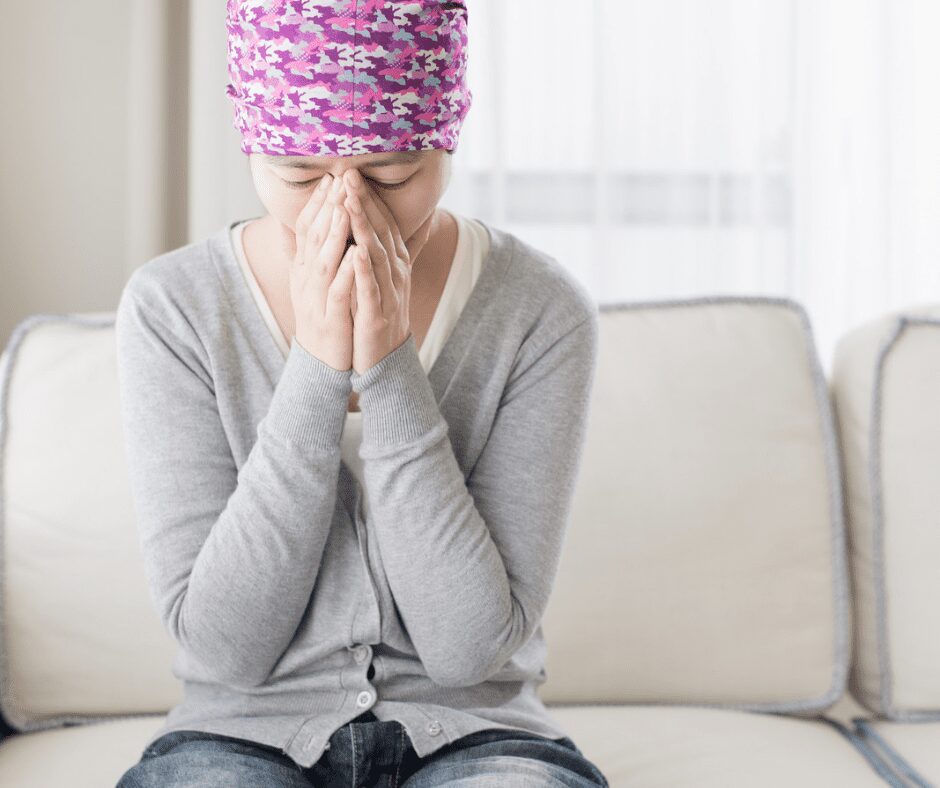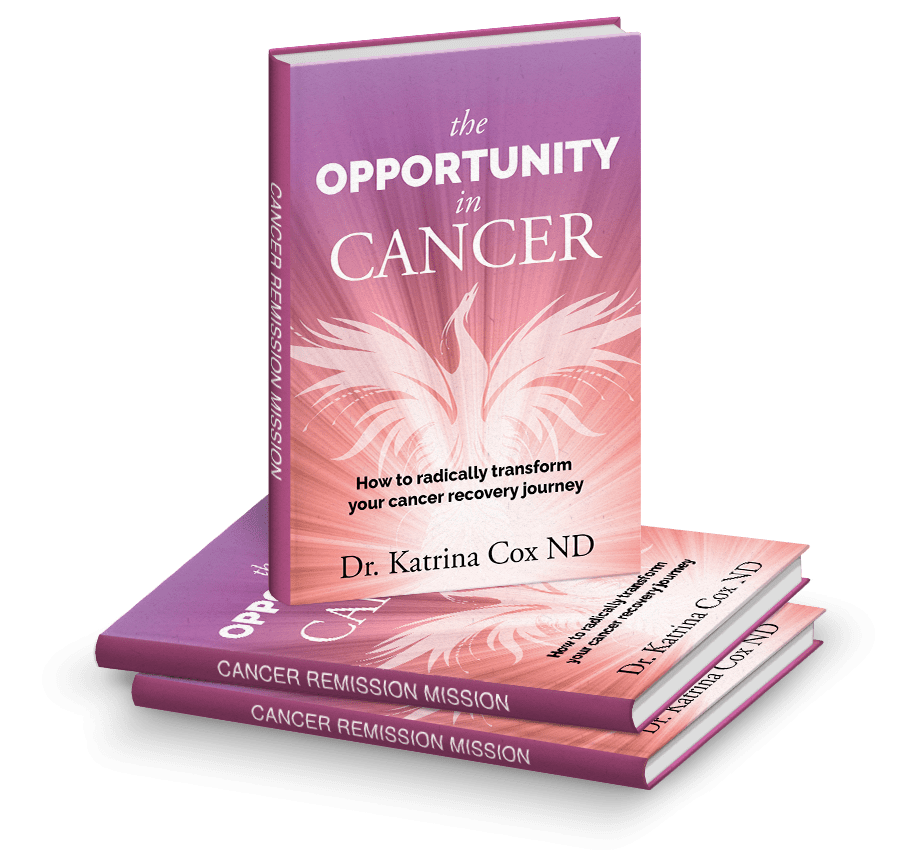I hear the F-word every day from cancer patients in my practice – FATIGUE. It is estimated that 75-100 percent of people post-cancer treatment experience fatigue and exhaustion. Of those, some even struggle with fatigue for the rest of their life and that is very impactful.
Cancer fatigue includes both physical and mental fatigue and makes everyday tasks more difficult. It affects our quality of life since it impacts our ability to participate in our lives to the fullest extent. This extreme fatigue disrupts our daily activities, prevents us from doing regular physical activity, and may even stop us from being able to work.
In this post, we will dive into post-treatment fatigue and offer some insight into what could be at the root of your personal exhaustion.
Why do people struggle with fatigue after treatment?
The important thing to remember is that we are all individuals and have unique experiences. At the foundation, fatigue is a symptom of another underlying issue, and the particular issue(s) will be unique to each individual. In cancer recovery, fatigue is a result of how cancer and cancer treatment has affected the body.
To overcome the overwhelming fatigue, the first step is to determine the causes of fatigue and figure out what’s in the way of your body restoring itself to its normal, natural, energetic self. I call these “roadblocks”. These causes of cancer-related fatigue often have a physical basis, but these roadblocks can be mental or even spiritual in nature as well.
The Impact on Our Physical Body
Whether it be surgery, chemotherapy or radiation therapy, cancer treatments are incredibly hard on the physical body. There are many side effects of cancer treatment, but fatigue is by far the one I hear about the most. Although these treatments are intended to target cancer, they often have an impact on other organs in the body too. Side effects of cancer therapy can range from hormonal imbalances, and poor nutrient absorption, to changes in appetite and taste. The results are poor oral intake and not getting enough calories, despite patients typically having a good understanding of how to follow a healthy diet. Poor nutrition, day after day, can leave the physical body depleted.
Many people become anemic during treatment, which means they have low levels of red blood cells. The most common symptom of anemia is fatigue. However, no amount of extra sleep will correct this type of fatigue. This must be treated, through supplements, and blood transfusions in some cases, to ensure the anemia is fully resolved.
The disease itself affects us on a cellular level. Our mitochondria are the powerhouses of every cell. Their job is to make energy for every cell and to break down garbage to eliminate from the cells. So, you can imagine after the disease of cancer and the treatment, the effects on these mitochondria are huge. Restoring mitochondrial health in order to recover energy is a big factor, and this is where addressing nutrient deficiencies is very, very important.
The Impact on Our Mental & Spiritual Health
It is more than just the impact on the physical body. The cancer diagnosis and the journey itself is full of twists and turns that have a profound impact on one’s mental and spiritual health. The nature of this can range from a simple change in perspective on life and a desire to find one’s purpose, to complex post-traumatic stress disorder as a result of prolonged emotional distress. A lot of people will have intrusive thoughts too, like fear about the cancer returning, or anxiety, about the fact that they’re not recovering as quickly.
When our mental health is not looked after, concerns like anxiety and depression can also leave us feeling depleted. In addition, insomnia and poor sleep often go hand in hand with anxiety and depression, only perpetuating extreme tiredness.
Will’s Experience with Post-treatment Fatigue
One of the first patients in my clinical practice was a man named Will. Will struggled extensively with fatigue. His energy just wasn’t there and he was missing out on all of life’s important parts. He thought, “I’m through cancer. Why can’t I just enjoy my family and get back to normal?” He had four young kids and financially it was important for him to return to work. He was well supported at work and they very much wanted him back, but he just didn’t have the energy to go every day.
I met Will and it started to dawn on me that this is a group of people that need more help. It’s not just simply about what’s the best supplement and what’s the next thing to do. We have to really dig deep into the roadblocks to recovering energy for cancer survivors.
So he came to see me and we started talking about what was in the way of getting his energy levels back. We realized that there are two major components in terms of recovering from fatigue.
The first one is your mental clarity, being in the right frame of mind in order to regain energy is really important to combat fatigue. Things like anxiety and intrusive thoughts of fear and uncertainty were weighing him down. Intrusive thoughts like this can take up so much of our mental energy, that it often reduces our capacity to do much else.
The second roadblock that we discovered, which is huge for me, was his nutrient deficiencies. Restoring physical health is not just waiting for your body to recover after the extensiveness of the disease, and of course the treatment. We really have to dig deep in helping patients restore themselves, and that’s really important for cancer survivors to get to thriving. This energetic state is needed in order to feel like we can live life again to its fullest.
 The most interesting statistic that I’ve come across is that 80% of those who have been treated with chemotherapy experience frank vitamin D deficiency. That to me is not an okay thing. Just saying take 1000 IUs of vitamin D is not enough. We need to follow up and make sure that what we are providing to correct the deficiency is working sufficiently, and adjust the dosage or plan accordingly.
The most interesting statistic that I’ve come across is that 80% of those who have been treated with chemotherapy experience frank vitamin D deficiency. That to me is not an okay thing. Just saying take 1000 IUs of vitamin D is not enough. We need to follow up and make sure that what we are providing to correct the deficiency is working sufficiently, and adjust the dosage or plan accordingly.
The best way to address nutritional deficiencies is to find out what they are, and dig deeper into how your particular treatment and the disease have affected your nutritional status. I advocate for anyone I work with to understand their blood tests, to know more about their blood counts along the way, and to understand what kinds of supplements can be taken safely to address nutrient deficiencies.
When we can practice as much prevention as possible, or at least catch deficiencies in the early stages, we can avoid prolonged recovery periods and keep you thriving as best as possible. This is particularly important if you have other health conditions that may put you at risk of nutritional deficiencies as well.
Are you struggling with fatigue and not sure where to start? Click here to access your free copy of The Ultimate Energy Building Guidebook for Cancer Survivors. Inside you will find the 5 Critical Steps to SUPERCHARGE your Energy during Cancer Recovery and tons of detailed information to get started.




